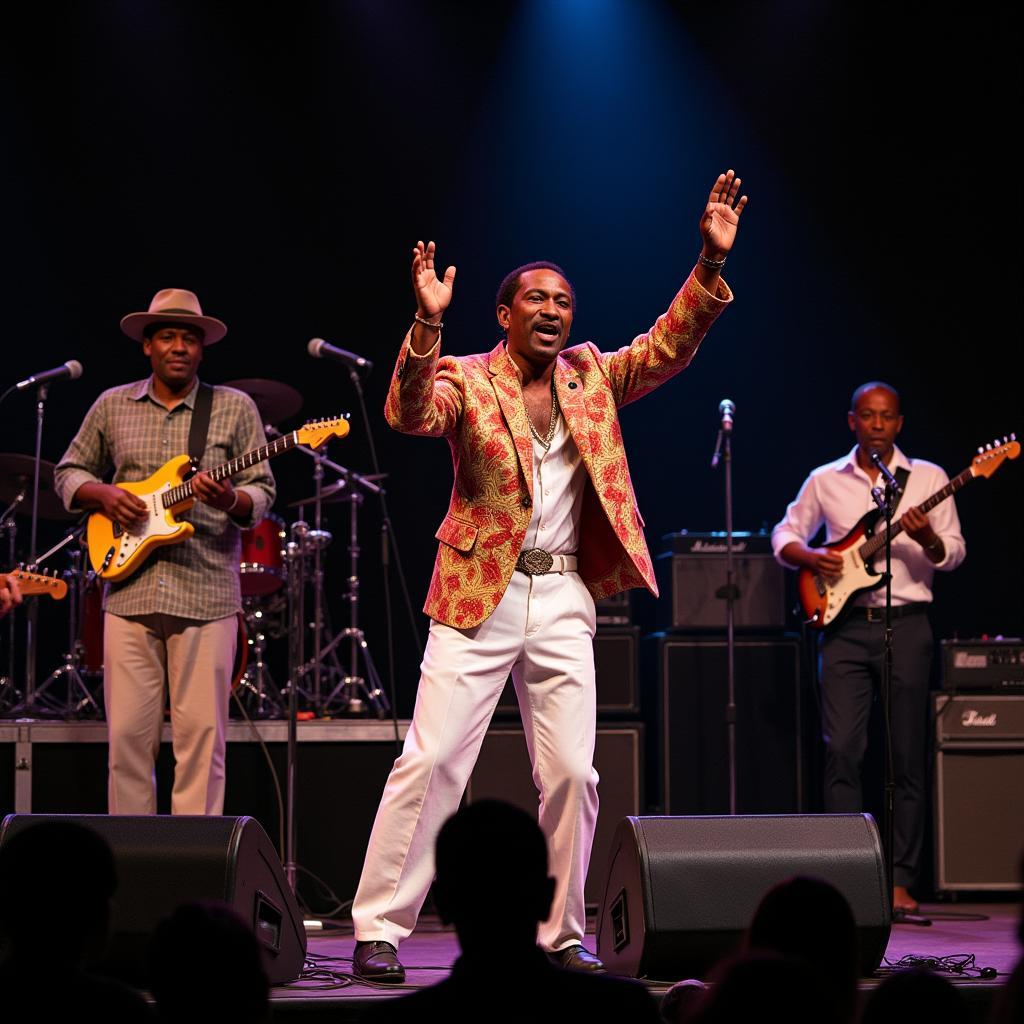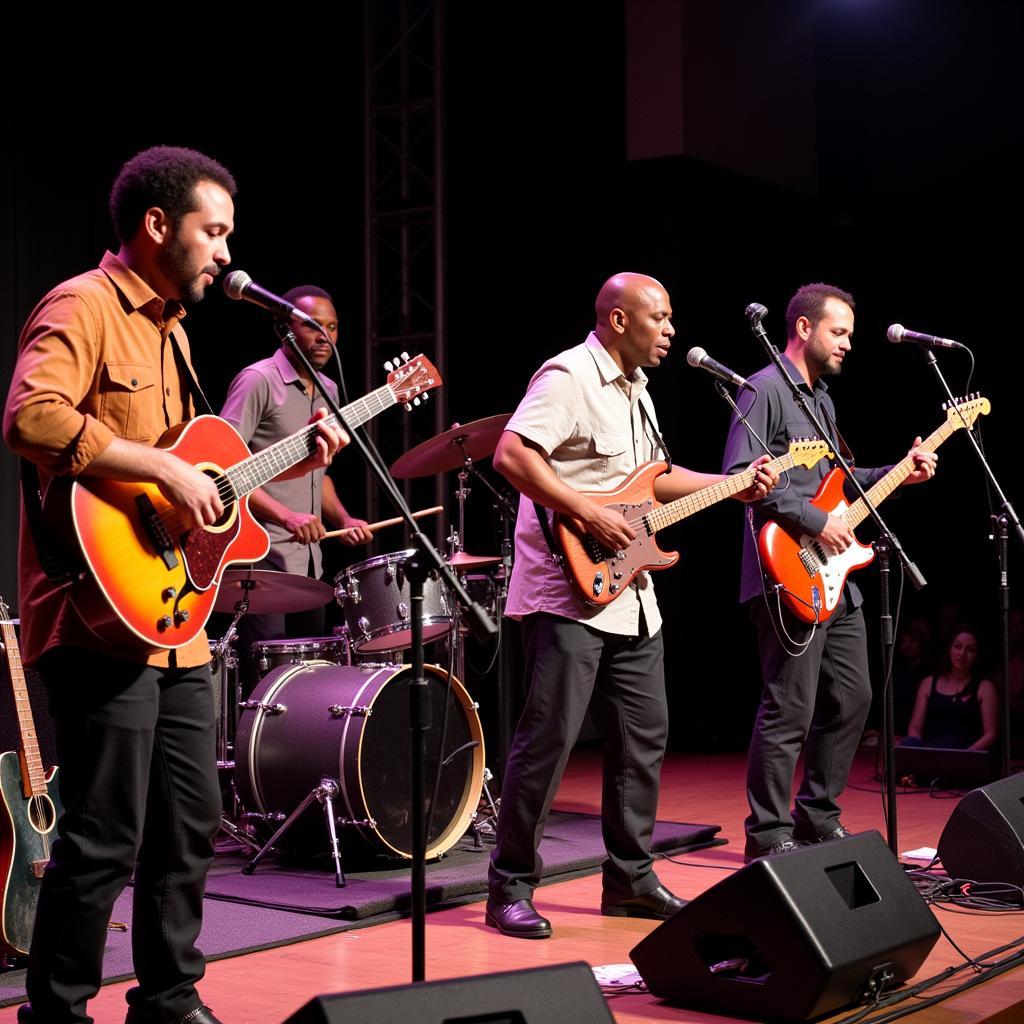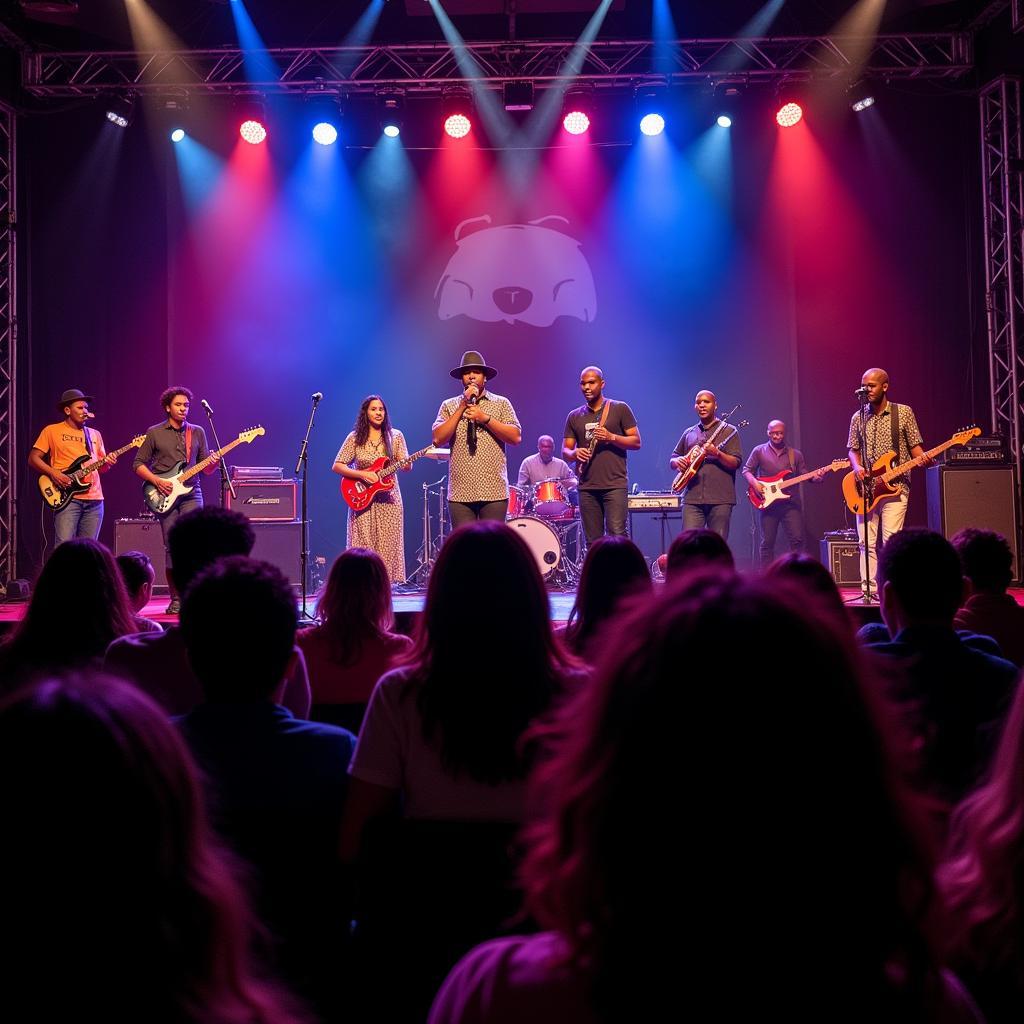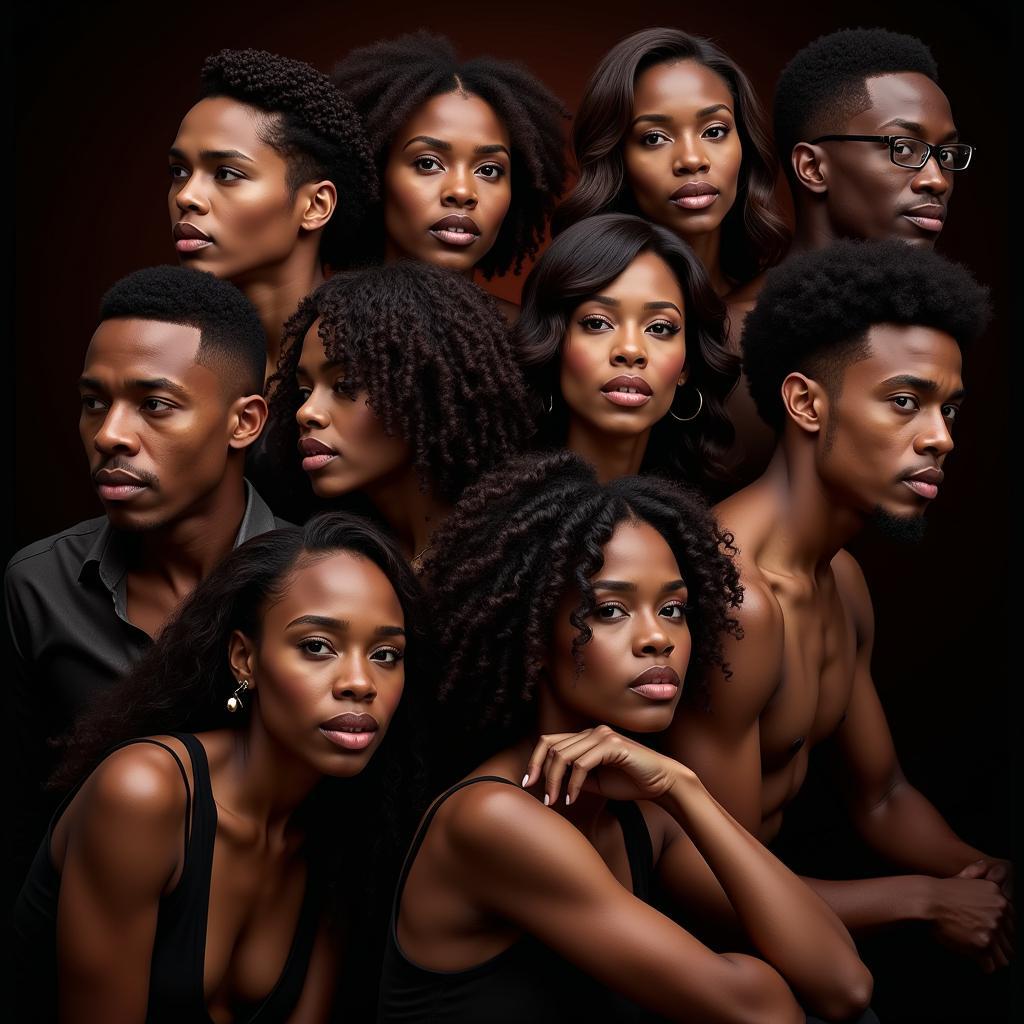Exploring the Rhythms of African Funking
African Funking is a vibrant tapestry woven from the threads of diverse musical traditions, rhythmic innovations, and socio-cultural influences across the African continent. It’s more than just a genre; it’s a pulsating expression of life, reflecting the joys, struggles, and evolution of African communities. From the high-energy beats of Afrobeat to the soulful grooves of mbaqanga, African funking encapsulates a spectrum of sounds that have captivated audiences worldwide.
The Roots of African Funking: A Fusion of Tradition and Innovation
The genesis of African funking lies in the rich musical heritage of the continent. Traditional rhythms, passed down through generations, formed the bedrock upon which new musical styles emerged. The introduction of Western instruments, particularly during the colonial era, provided a catalyst for experimentation and fusion. This blend of indigenous sounds with Western instrumentation created a unique and dynamic musical landscape. The electric guitar, bass, and drums, once foreign elements, became integral components of African funking, adding layers of complexity and intensity to traditional rhythms.
Afrobeat: Fela Kuti and the Rise of a Global Phenomenon
One of the most iconic examples of African funking is Afrobeat, pioneered by the legendary Nigerian musician Fela Kuti. Afrobeat seamlessly blends West African musical styles with elements of funk, jazz, and highlife, creating a politically charged and socially conscious sound. Kuti’s powerful lyrics, often critical of corrupt regimes and social injustices, resonated deeply with audiences both within Africa and internationally. Afrobeat’s infectious rhythms and driving horn sections helped propel it to global recognition, solidifying its place as a defining force in African funking.
 Fela Kuti Performing Afrobeat
Fela Kuti Performing Afrobeat
Mbaqanga: South Africa’s Groovy Response to Apartheid
In South Africa, mbaqanga emerged as a powerful expression of cultural resilience during the apartheid era. This vibrant genre draws on Zulu musical traditions, incorporating elements of jazz, marabi, and kwela. Mbaqanga’s upbeat tempos and catchy melodies provided a source of joy and unity for communities facing oppression. It became a soundtrack for resistance and celebration, echoing the struggles and hopes of a nation striving for freedom.
The Evolution of African Funking: From Township Jams to Global Stages
African funking has never been static. It continues to evolve, adapting to changing times and incorporating new influences. From its origins in township jams and local clubs, African funking has found its way onto international stages, captivating audiences worldwide. Contemporary artists are pushing the boundaries of the genre, experimenting with electronic sounds, hip-hop rhythms, and global collaborations. This constant innovation ensures that African funking remains a vital and dynamic force in the global music scene.
 Mbaqanga Band Performing in South Africa
Mbaqanga Band Performing in South Africa
What instruments are commonly used in African Funking?
Common instruments include the electric guitar, bass, drums, horns, and traditional African percussion instruments.
Why is African Funking important?
It represents a fusion of tradition and innovation, reflecting the cultural dynamism of the African continent.
“African funking is not just about the music,” says Dr. Abeni Adebayo, a renowned ethnomusicologist. “It’s a cultural phenomenon that reflects the spirit of innovation and resilience found across the African continent.”
The Future of African Funking: A Global Sound with Deep Roots
African funking’s future is bright. Its vibrant rhythms and infectious melodies continue to inspire artists and captivate audiences across the globe. As new generations of musicians embrace the genre, they bring their own unique perspectives and experiences, ensuring that African funking remains a vibrant and evolving force in the world of music.
 Modern African Funking Concert
Modern African Funking Concert
In conclusion, African funking is much more than just a musical genre; it’s a testament to the creative spirit and cultural richness of Africa. From Afrobeat to mbaqanga and beyond, the diverse sounds of African funking continue to resonate with audiences worldwide, offering a glimpse into the heart and soul of a continent.
FAQ
- What are some popular African funking artists?
- Where can I find African funking music?
- How has African funking influenced other genres?
- What are the key characteristics of Afrobeat?
- How did mbaqanga develop in South Africa?
- What is the future of African funking?
- Where can I learn more about African music history?
“The beauty of African funking lies in its ability to connect people across cultures and generations,” adds Adebayo. “It’s a celebration of life, resilience, and the power of music.”
You might also be interested in our other articles about African music, dance, and culture. Explore our website to discover more!
When you need assistance, please contact us at Phone Number: +255768904061, Email: kaka.mag@gmail.com Or visit us at: Mbarali DC Mawindi, Kangaga, Tanzania. We have a 24/7 customer service team.
